Meitheal Mara
Community Boatyard
Community Boatyard
Founded in 1993, Meitheal Mara is a community boatyard in the heart of Cork City. It’s a very unique place; where community spirit and craftsmanship combine to instil new skills and confidence in individuals of all ages and backgrounds.
As their website suggests, Meitheal Mara (meh-hal ma-ra) translates roughly as “Workers of the Sea”. Meitheal can also be translated as “community”.
When I visited, I experienced a fascinating place; full of creativity, positive outlook and fun. I met a team of dedicated people behind this registered charity and nationally-accredited training centre whose work reaches every angle of community development, preservation of maritime heritage and maritime event organisation.
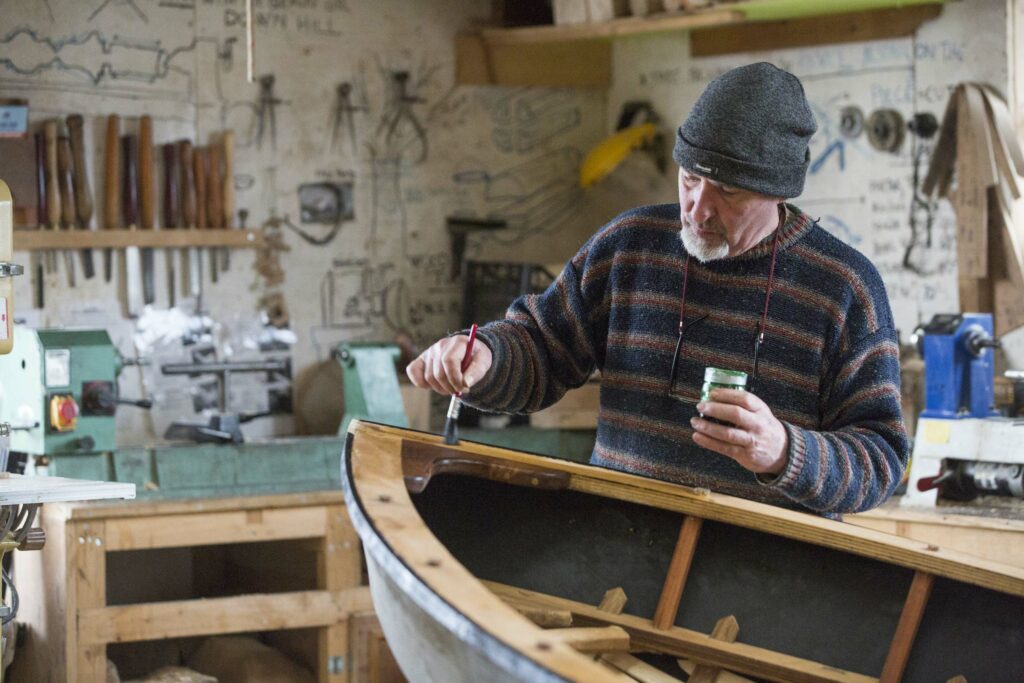
“Meitheal Mara’s mission is to integrate and expand personal and community development opportunities through the medium of traditional boatbuilding, maritime recreation and maritime heritage.”
The main focus of my visit is to learn about the community and training work that the team does through the medium of boat building and woodcraft. Working with community and youth groups all over Cork, including disadvantaged and socially-excluded individuals, they teach boat building, woodwork rowing and boat handling skills to over 250 young people and adults annually right up to those at the retirement age of the spectrum.
More recently Meitheal Mara supported a group of male asylum seekers living in direct provision to build a boat. It provided a hugely rewarding experience to educate new communities within Cork on traditional Irish craftsmanship. Cork is an increasingly a diverse city and rolling out these skills to people who wouldn’t traditionally have access to them is an extremely powerful proposition.
General Manager, Cathy Buchanan explains: “Our workshop is at the heart of what we do; we build traditional Irish currachs and teach the art of the boat building and craftsmanship to develop teamwork and personal skills in groups from diverse backgrounds.”
“We promote inclusivity and mutual trust, and this is vitally important as we help our participants learn, progress and develop. We are proud of the change in behaviour and new skills we instil in the people who we work with, through our partnerships with local youth, education and community organisations.”
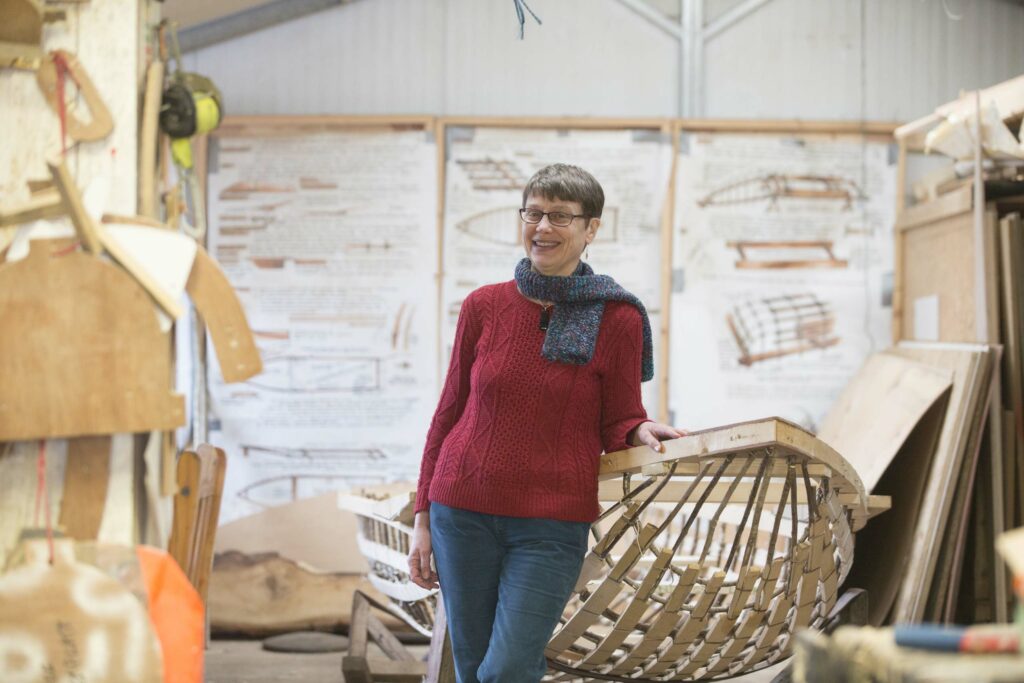
“Our youth projects based in Cork city centre utilise traditional boat building and rowing to promote social and personal development in young people. We run courses to encourage young people back into education and training.”
The characteristics of a currach can be described as: “A currach is a type of Irish boat with a wooden/wicker-work frame, over which animal skins or hides were stitched together. They were propelled by oars or sails according to circumstances and have traditionally been both a sea boat and a vessel for inland waters. The construction and design of the currach is unique to the west coasts of Ireland and Scotland and they are constantly mentioned in literature. They are used still round the coasts, but tarred canvas is employed instead of skins.”
“Currachs are now exclusive to Ireland; they are light seaworthy craft without a keel which ride large ocean waves and skim up shallow rivers.”
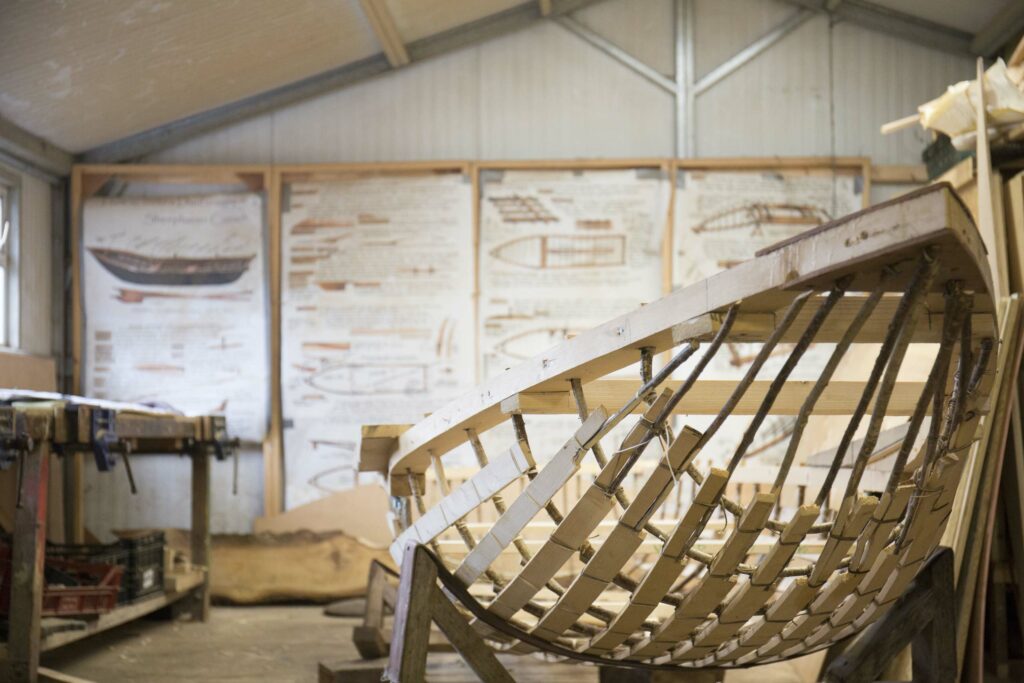
Workers at Meitheal Mara specialise in building traditional Irish currachs, particularly the Kerry-style naomhóg and a variation on the two-person hazel-rod currach used on the north coast of Donegal.
They also provide repair services such as sanding, painting, boat restoration and maintenance. They build wooden boats too and have developed one-off designs with youth and community partners for all kinds of groups, events, museum exhibitions, documentaries and films, including Irish Design 2015 and The Game of Thrones. The team in the workshop also produces the Meitheal Mara range of hand-made woodcraft: bowls, toys, model boats, bookshelves, tables and stools.
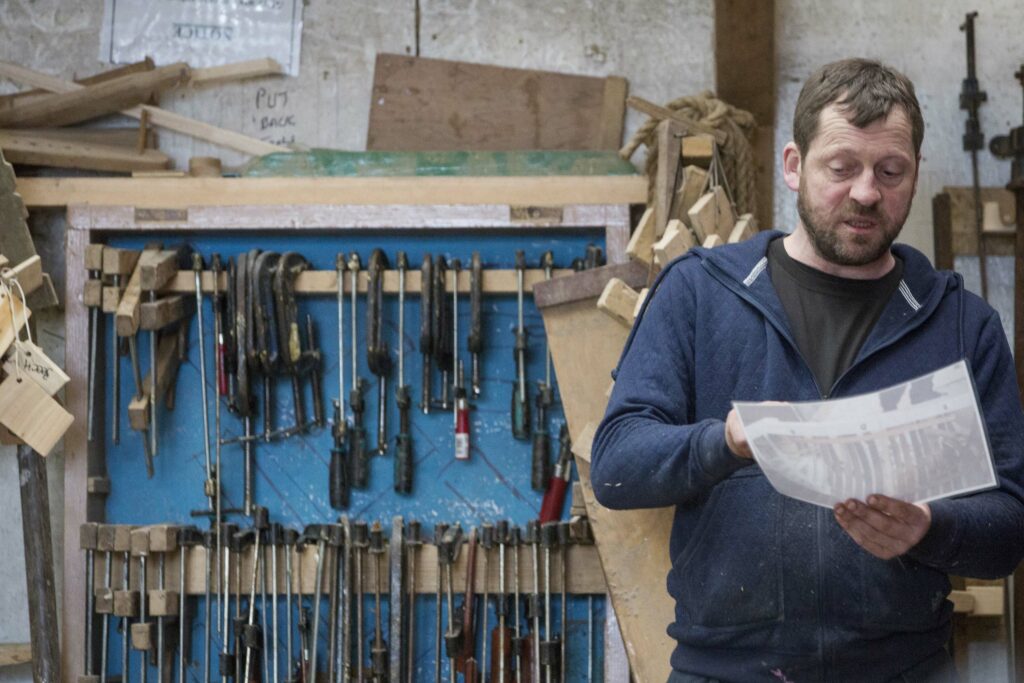
Cathy sees parallels with the ethos of ‘Cork Can’ and this is the reason for our inclusion of the story of Meitheal Mara in the mix of Cork’s ‘Stories of Can’.
“Our approach is two-fold: having a close-knit, inclusive team with a powerful mental attitude to help participants who have faced challenging circumstances and uncertain times. The power of ‘can’ is celebrated when, 2 years into working with us, participants can meet you in the eye and show you a new-found confidence that wasn’t there before,” she says.
“The amazing teams at Meitheal Mara work tirelessly with communities in Cork while simultaneously preserving a small but important part of our heritage”.
As an ex-competitive rower, General Manager Cathy Buchanan is passionate about maritime activity and that’s what Meitheal Mara is equally as skilled at.
As well as teaching participants how to build traditional boats, they also teach them how to sail and row these boats and take part in maritime races and events in Ireland and overseas. There has been a huge rise in interest in the marine environment and watersports activities throughout the city and county and Meitheal Mara enjoys responding to these opportunities.
Cathy tells me “Over the last 20 years, we have shared our maritime culture ethos by bringing the pleasures of building and rowing currachs to a wide public. We teach groups how to use the boats too – some of whom wouldn’t normally get a chance to take to the water.”
The ethos of Meitheal Mara is to get people on the water in many different ways. Young people on the ‘Bádoireacht’ programme learn how to row, sail or paddle, and become comfortable with handling boats. Meitheal Mara’s workers lead regular River Lee clean-up projects and the organisation partners with Naomhóga Chorcaí, Cork’s currach club, and Cork Dragons, the dragonboat club for cancer survivors. All these touchpoints accentuate Cork’s growing reputation as a leading centre for community boating.
The pinnacle of Cork’s maritime calendar is Meitheal Mara’s organisation of Ocean to City – Án Ras Mór (‘The Big Race’), Ireland’s largest and most inclusive rowing race, and the anchor for the week-long Cork Harbour Festival each June. Its a 15 nautical mile (28km) rowing race that attracts entries from all over the world competing in all types of rowing boats and kayaks.
But it’s more than just a race, there’s something for everyone in this maritime festival that celebrates Cork’s unique maritime heritage and natural harbour: dragon boat, currach and kayak trips, ‘Corkumnavigation’ paddling trips around the River Lee, harbour cruises, Navy tours, angling trips, films and talks, food and craft markets, music and lots of free family entertainment.
“Meitheal Mara delivers a very valuable community service, not only for training and skills but also by keeping the community actively involved with the wonderful resources that Cork’s rivers offer.”
Community spirit is so alive in Cork and I have witnessed this around every corner. It’s an important outlook that is instilled so widely and also recognised by the City and County Public Participation Networks (PPN).
“Valuing the local and volunteering is second nature to communities in Cork, the camaraderie and positive attitude that gets things done. The innovation and imagination merged with the inheritance of the Meitheal, doing things collectively, is inherent and helps deepen community connections, relationships, create a
sense of place and love of one’s own county
which manifests across the social, economic and environmental realms to strengthen and advance communities”, states the Cork County PPN.
Meitheal Mara not only lives and breathes community spirit, it is a backbone of Cork’s essence of community and is a benchmark for others to aspire to. Exciting times lie ahead for Meitheal Mara, whose primary objective is to grow and integrate Cork city’s maritime recreation and tourism sector at a purpose-built river-side site.
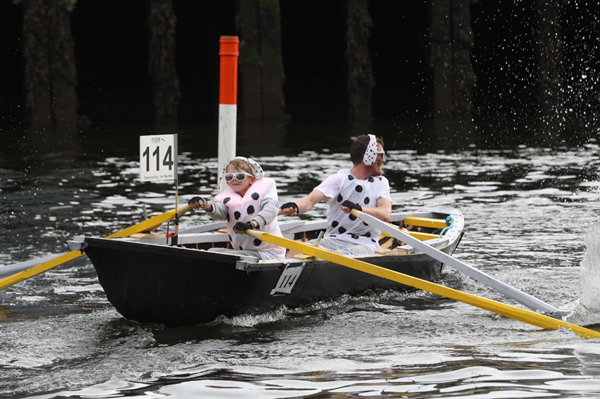
Interview by Katrina Dowling. Photographs by Clare Keogh.